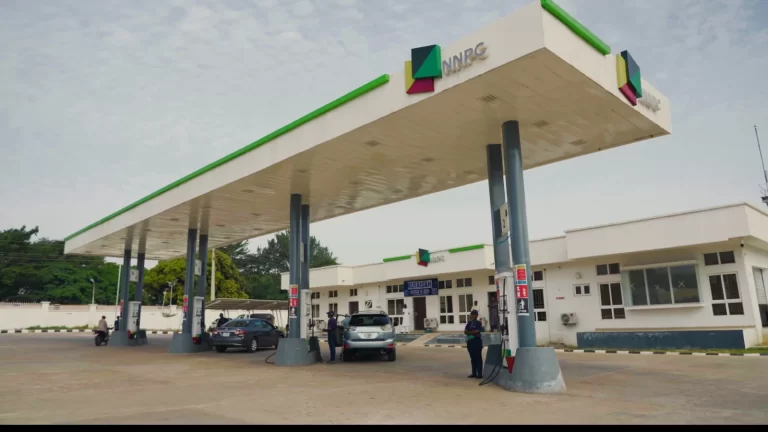The Nigerian National Petroleum Company (NNPC) Limited has once again raised the pump price of petrol, with consumers in Lagos now paying N915 per litre, while residents of Abuja face an increased price of N945 per litre.
This marks a N45 increase from the previous price of N870 in Lagos and a N35 jump from N910 in Abuja. A market survey conducted on Monday by The Cable revealed the new pricing at various NNPC filling stations. At the NNPC outlet along Fin Niger, Badagry Expressway, Lagos, attendants confirmed the hike, noting that instructions were given on Sunday to adjust the pump price from N870 to N915. Similar changes were reported at the Igando station.
In Abuja’s Federal Housing area of Kubwa, motorists were seen purchasing petrol at N945 per litre, up from the previous N910.
MRS Adjusts Petrol Price to N925–N955
Adding to the trend, MRS Oil Nigeria Plc — a major distributor of products from Dangote Refinery — also implemented significant upward adjustments. In a new pricing template shared via its official X (formerly Twitter) account on Saturday, MRS announced that petrol would now sell between N925 and N955 per litre nationwide, rising from the previous range of N825 to N895.

Breakdown of new MRS prices by region:
Lagos: N925
South-west: N925
North-central (including Abuja): N935–N945
North-west: N955
North-east: N955
South-east: N945

Specifically, Lagos and Abuja residents are now paying N925 and N945 per litre at MRS stations, compared to the earlier rates of N875 and N895, respectively.

Other Retailers Follow Suit
TotalEnergies has also revised its pump price upward to N910 per litre from N879. Meanwhile, independent marketer Oluwafemi Arowolo Petroleum in Iba, Lagos, now sells petrol at N920 per litre.
Global Oil Tensions Fuel Domestic Price Surge
Industry observers link the domestic fuel price hike to heightened geopolitical instability in the Middle East, particularly the ongoing military conflict between Israel and Iran.
Since June 13, both nations have exchanged a series of airstrikes and missile attacks, raising fears of a broader regional war that could disrupt global oil supply chains.
In response, crude oil prices have surged nearly 3% over the past week, pushing West Texas Intermediate (WTI) and Brent crude to their highest levels since January.
The crisis escalated further on Sunday, June 22, when U.S. President Donald Trump confirmed targeted U.S. airstrikes on three major Iranian nuclear facilities — Fordow, Natanz, and Isfahan — prompting renewed market fears and additional pressure on global energy prices.
With no immediate resolution in sight, fuel prices in Nigeria and beyond may continue to rise as international tensions persist.





